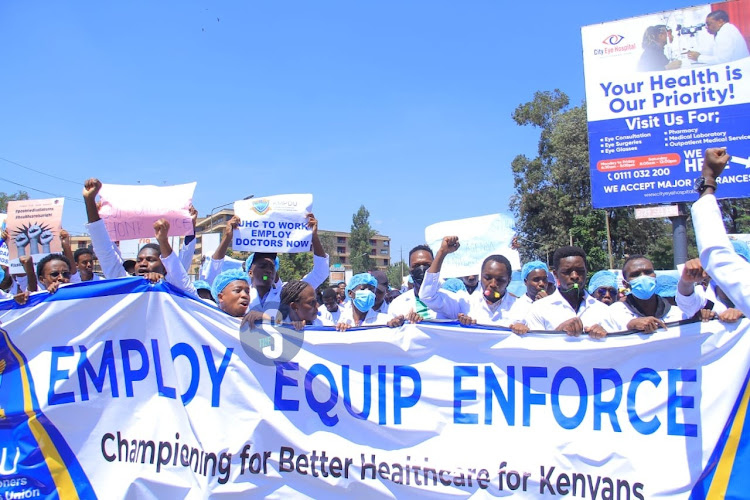When was the last time you were in a hospital as a patient? Walking into those hospital corridors, you were seeking healing from an ailment. If you happened to sit across from a white-coated doctor and explained your symptoms, you probably hung on every word they uttered in response. Maybe some tests were done, and thereafter, the doctor gave you a diagnosis and prescription. A few days or weeks later, you were fully healed, thanks to this interaction. This scene plays out hundreds of thousands of times across Kenya every single day in public hospitals. But for the last fifty days, it has happened zero times due to the ongoing strike. Patients are deeply stressed and regrettably, some have lost their lives.
This situation has weighed heavily on my mind, compelling me to write. The urgent need to understand this strike must be matched by immediate action from all Kenyans of goodwill, particularly the doctors and government, to bring it to an end.
On one side, the medical doctors who I hold in high regard are not only justified in their strike but driven by a deep passion rooted in their profession. The genesis of their discontent traces back to a Collective Bargaining Agreement (CBA) signed in 2017, which remains unfulfilled. Governments whether county or national are continuous, regardless of regime changes — thus, the obligations of past administrations extend beyond their tenure.
These doctors, many of whom operate at County Levels 4, 5, and 6, are often the backbone of our healthcare system, routinely enduring 36-hour shifts. They are heralded not only for their medical acumen but for their dedication. Their union’s strength underscores a collective voice that cannot be ignored, particularly when contrasted with the high salaries paid to foreign medical practitioners whenever brought into the country.
Conversely, I feel the government’s stance, though seemingly rigid, is not without merit. Financial constraints in the current economic climate have tightened the national purse strings, making it challenging to meet all union demands. The fear that resolving this strike might set a precedent, potentially triggering a series of labor actions across various sectors, is palpable within the corridors of power. Additionally, there’s a political dimension—emotional appeals are made to demonstrate care for patients, perhaps masking deeper systemic issues.
The real victims of this impasse are Kenyan citizens, especially those without comprehensive medical coverage, who now lack essential health services.
According to the Kenya Bureau of statistics, only one out of four Kenyans has some form of health insurance. This means affordable public hospitals are the only recourse for most Kenyans. As such, both parties must reconvene with a renewed sense of urgency and a softened stance.
It’s crucial for the medical fraternity to acknowledge the broader economic challenges and the ripple effects of their strike. Further, the government must be transparent about its financial constraints and negotiate with the utmost good faith. After all, a breach of trust in any relationship, especially one as critical as this, can have dire consequences. Isn’t that true?
Both parties must address a crucial question — should the entire medical working ecosystem be reevaluated and overhauled? Why do some doctors endure 36-hour shifts while others work only 6 hours in this era of Artificial Intelligence? Moreover, why do consultants face greater legal responsibilities before the Medical Board, while interns may escape accountability for serious patient mishandling? Is it not time for out-of-the-box thinking?
As we navigate these troubled waters, we must all think green and act green. This isn’t just about environmental consciousness but about nurturing a sustainable future for all sectors in Kenya, including healthcare. Our actions today will determine the health of our nation tomorrow.
Meanwhile, I passionately urge both parties to act with urgency and compassion, finding a middle ground where doctors can continue to provide emergency services and prevent further avoidable deaths. Remember, wanaokufa ni watoto wa Mungu. Think green, act green!



